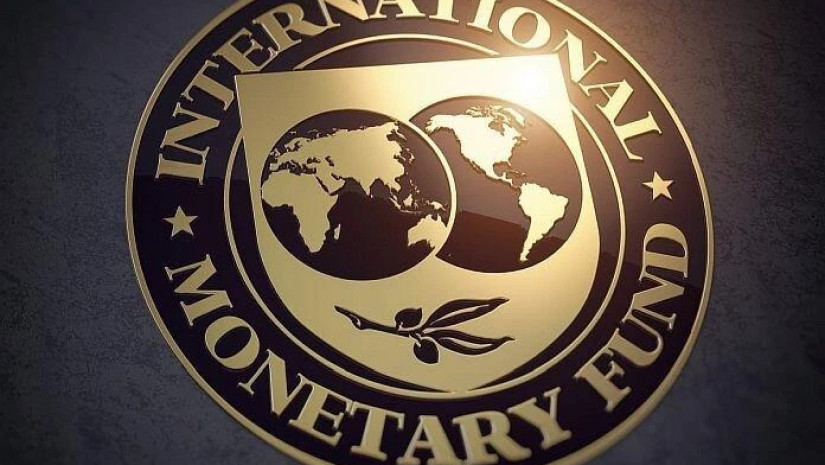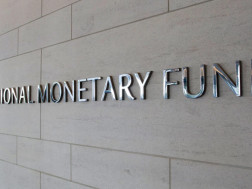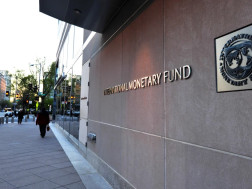An International Monetary Fund (IMF) team led by James John held meetings in Tbilisi during April 27 - May 10, 2023, to conduct discussions on the second review of Georgia’s economic program supported by an IMF Stand-By Arrangement (SBA). At the end of the visit, Mr. John issued the following statement:
“Following productive discussions, the Georgian authorities and the IMF team reached staff-level agreement on policies for completion of the second review of the SBA. The agreement is subject to consideration by the Executive Board in June 2023. Completion of the review will make SDR30 million (about $40 million) available to Georgia. The authorities are treating the program as precautionary.
“The Georgian economy has performed strongly since the pandemic, reflecting limited adverse spillovers from Russia’s war in Ukraine and prudent macroeconomic policies. Buoyant tourism and a surge in immigration, financial inflows, and transit trade triggered by the war in Ukraine have boosted growth and fiscal revenues, and strengthened the current account balance and the lari. The authorities have taken advantage of relatively favorable conditions to rebuild fiscal and foreign exchange buffers. The financial system remains sound and National Bank of Georgia (NBG) action to require banks to adhere to relevant sanctions has helped limit the impact of the war.
“High inflation has fallen sharply recently and is now below the NBG’s 3 percent target due to lower commodity prices, lari appreciation, restrictive monetary, fiscal, and macroprudential policies, and tighter global financial conditions. Core inflation has also declined but remains somewhat elevated amid strong domestic demand and a tight labor market with high wage growth and low unemployment.
“All but one of the quantitative performance criteria for the second review were met, including on inflation, the fiscal balance, and international reserves; a small overrun in budget lending has been corrected. The authorities implemented structural reforms in the areas of tax policy and administration, public investment management, fiscal risks, NBG communications, and financial supervision.
“Looking ahead, growth is projected to converge to its potential rate of a little above 5 percent in 2023, while inflation would remain below the NBG’s 3 percent target, reflecting the factors described above including a continued tight monetary policy stance with positive real interest rates. Over the medium term, growth is expected to remain close to potential, supported by infrastructure investments and an expected improvement in global economic and financial conditions. Inflation is forecast to be close to target in 2024.
“Given high uncertainty regarding global economic and financial developments and political conditions, policies should remain focused on entrenching macroeconomic and financial stability and maintaining the momentum for structural reforms.
“We welcome the NBG’s continued commitment to the inflation-targeting framework, the floating exchange rate, and prudent international reserve management including to strengthen reserve coverage. Price pressures from strong domestic demand and a tight labor market will likely warrant a cautious and gradual approach to policy rate cuts to maintain a restrictive policy stance until core inflation durably falls. Increases in the policy rate could be needed if core inflation rises. Steps to improve bank resilience as well as monitoring and regulating virtual asset service providers will further enhance financial stability. Upholding the NBG’s independence and credibility is essential.
“Fiscal policy has been appropriately focused on building buffers and managing risks. The authorities remain committed to the further adjustment called for in the 2023 budget to comply with the fiscal rule. Continued progress is necessary in revenue mobilization and public investment management to accommodate spending priorities, including on infrastructure and education, and to improve spending quality and efficiency. Successful implementation of the strategies adopted last year for state-owned enterprise governance and for renewable energy development are expected to enhance productivity and limit fiscal risks.
“Implementation of the authorities’ comprehensive structural reform agenda will reduce entrenched high unemployment and support long term inclusive growth. Priorities include addressing skills mismatches and gender disparities through better education, training, and active labor market policies, improving competitiveness through strengthening corporate governance and anti-corruption frameworks, and prioritizing key infrastructure projects to foster economic diversification and regional connectivity.
“The IMF team would like to thank the authorities, international development partners, and representatives of the private sector for the open and constructive discussions.”
















